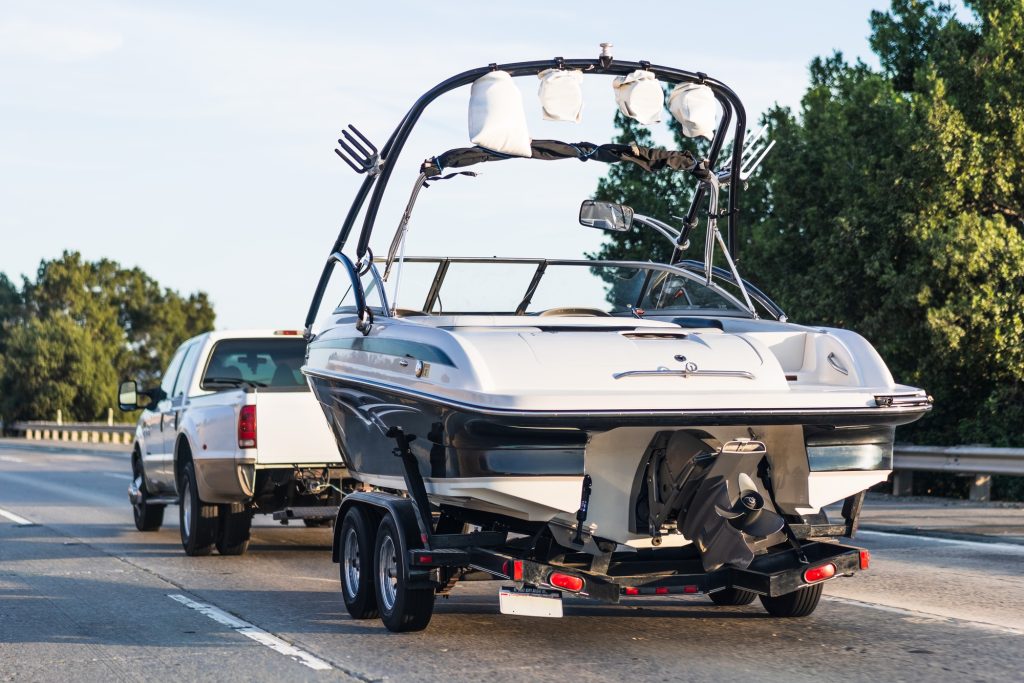Do you need to tow something hefty, or are you just looking to transport your belongings with ease? When it comes to trailers, Gooseneck and Traditional are terms you’ll encounter often. But you might wonder which of these mechanical beasts is your ideal match.
Each type has its own set of advantages, designed for different needs and uses. This article will explore their unique features, capacities, and user-friendliness, helping you make a choice that leads to smooth and safe travels.
Understanding Gooseneck Trailers
Named for their unique hitch design that resembles the elongated neck of a goose, gooseneck trailers stand out due to their distinct structure and superior weight-handling abilities. Let’s break down their key features:
- Design And Structure: This trailer type connects to the bed of the towing vehicle over the rear axle using a hitching ball. This connection sits higher than traditional trailer hitches, offering a distinctive profile and facilitating unique functionalities.
- Weight Distribution: The hitch point’s position allows goosenecks to handle significant weights—potentially up to 30,000 pounds or more, depending on its specific design and construction.
- Stability And Safety: With strategic weight distribution, goosenecks promise better stability, especially at higher speeds, making them ideal for long-haul journeys.
- Maneuverability: Their design affords a sharper turning radius, aiding in navigating tight corners without the trailer coming into contact with the towing vehicle.
- Space And Storage: The compact hitch point design offers potential for additional storage or, in custom cases, a sleeper section.
Expert Tip: Before hitching a gooseneck, ensure your towing vehicle—preferably a robust pickup truck—is up to the task. Beyond pulling, safe stopping is vital. So, always factor in the brake systems and vehicle health.
Understanding Traditional Trailers
Often referred to as bumper pull or tag-along trailers, traditional trailers are the most common type seen on the roads. Their simplicity and versatility make them a top choice for many. Here’s what you should know:
- Design And Structure: Traditional trailers hitch directly to a frame-mounted receiver at the back of the towing vehicle, usually the bumper area, hence the name ‘bumper pull.’ This design makes them compatible with a wide range of vehicles, from trucks to sport utility vehicles (SUVs).
- Weight Handling: While they don’t match the weight capacities of gooseneck trailers, traditional trailers are no slouch. They can typically handle weights from 1,000 to 10,000 pounds, suitable for general cargo, recreational vehicles, or smaller boats.
- Ease Of Use: One of the standout features of traditional trailers is their simplicity. Hitching and unhitching can often be done by a single person without much hassle.
- Maneuverability: While they lack the sharp turning capabilities of a gooseneck, their shorter length can sometimes make them easier to manage in everyday scenarios, such as parking in standard-sized spaces. However, this also depends on the wheel-base length.
- Cost Factor: Generally, traditional trailers come with a lower upfront cost compared to gooseneck trailers, making them a popular choice for occasional users or those on a tighter budget.
Expert Tip: When opting for a traditional trailer, always ensure your towing vehicle’s hitch is rated for the trailer’s weight. Additionally, regularly inspect all connections, brakes, and lights, as the rear placement means they’re exposed to road debris and wear more frequently.

Factors To Consider When Choosing Between the Two
Picking between gooseneck and traditional trailers requires more than just a specification comparison; it’s about understanding how they fit into your individual needs. Here are some crucial considerations:
- Nature And Weight Of Cargo: Assess the kind and weight of items you’ll be transporting. If you’re frequently hauling very heavy loads, a gooseneck might be more apt. For lighter, more occasional towing, a traditional trailer could suffice.
- Towing Vehicle Compatibility: While goosenecks necessitate robust pickup trucks, traditional trailers offer wider compatibility. Ensure your current vehicle matches the trailer type you’re leaning toward.
- Budget: Traditional trailers usually come with a friendlier price tag, making them appealing to infrequent users. However, if your tasks demand the capabilities of a gooseneck and you’re using it regularly, the investment can be justified.
- Driving Experience And Comfort: If you’re new to towing, a traditional trailer might be more forgiving. Goosenecks, while offering stability, do demand a certain level of expertise, especially given their weight capacities.
- Storage And Parking: Consider where you’ll store the trailer when not in use. Goosenecks, being larger, might require more space. Additionally, think about the ease of parking in the destinations you frequent.
- Future Needs: Think long-term. Your immediate needs might lean one way, but consider potential changes in the future, such as moving homes, changing vehicles, or even expanding a business.
Expert Tip: Consider test-driving or renting both types before making a final decision. This hands-on experience can provide invaluable insights.
Final Thoughts
Choosing the right trailer is more than just a matter of specs; it’s about ensuring your journeys, be they for work or leisure, are smooth, safe, and efficient.
As you venture into your next adventure or project, remember that the best decisions come from understanding your requirements and trusting your instincts. Here’s to successful travels, knowing you’re equipped with the best tool for the job.


